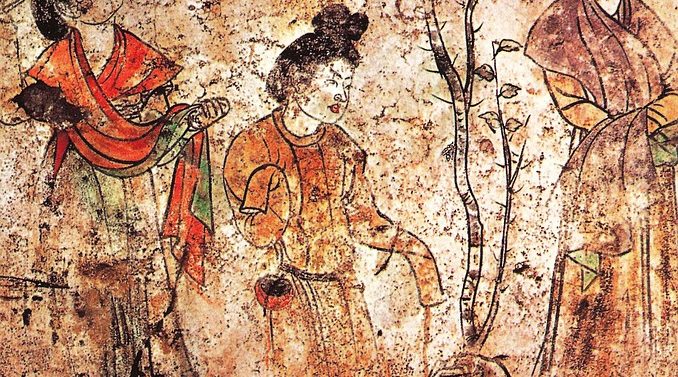
Celebrate the Tomb Sweeping Festival at Drury
Campus News, Community, News March 29, 2019, Comments Off 68Today, the celebration of Chinese festivals like the Chinese New Year and Moon Festival are common in the west. The Tomb Sweeping Festival, taking place at Drury on April 4 and internationally on April 5, is less known.
Dr. Hue-ping Chin and our Fulbright professor of Mandarin, Tina Chiou, explained the history of the festival.
In Chinese, the original name for the celebration is “Qingming,” meaning “clear” or “bright.”
“It’s a festival related to a historical story, and also a season. It marks the change of the seasons and the beginning of spring,” Professor Chiou said.
“We wish that the government is clear and bright, rather than dark so the people can have a better life,” Professor Chiou continued, elaborating on the meaning of the festival’s name and tying it to the stories it finds its roots in.
China has a deep history of ancestor veneration and filiopiety, or the understanding that families are hereditary and parents are to be respected in both life and death. Having a clean grave is a sign that your family cares about you; a clean and elaborate tomb is a good indicator of wealth as well.
Americans shy away from death and have many superstitions associated with graveyards. Our only real holiday that celebrates the dead is Memorial Day, and even that is reserved for those lost in battle. The lack of an equivalent holiday and different cultural values account for our lesser knowledge of the event.
“The tomb of our ancestor is like the house of our grandpa or great-grandpa. You have to make them comfortable living, sleeping there,” Professor Chiou explained.
The cleaning of ancestral graves is a time for the whole family to get together, and food is brought to the tomb. The most popular food is a type of thin rice wrap full of spring vegetables like Chinese celeries, leeks and cilantro.
“They were usually made at home. Now that they’ve commercialized [the wraps], you can go on the streets and buy them,” Dr. Chin added.
They are also the starting point for a Hibachi Wednesday staple in the Commons: the deep-fried egg rolls.
“Traditionally, we don’t fry them. We only fry leftover egg rolls; they’re actually spring rolls,” Dr. Chin said. “You don’t use fire on that day.”
Why no fire? In Chinese folklore, there is a story of a runaway prince, trying to protect himself from the king’s jealous – and favorite – wife who wanted her son to sit on the throne. Many people aid him along his journey, including a man who provided food for the would-be king. Once the prince was able to return home and claim his title, he sought after the man to give him a royal position, but the man was unwilling to leave his mother.
“’How about let’s burn this mountain?’ Because if he wanted to save the life of his mother, he would definitely come out. And the king says, “That’s a great idea, let’s do it!” Professor Chiou laughed. “So, no fire for that day. Only cold food.”
This tradition dates back to the foundation of the Han dynasty, when the Emperor Gaozu wanted to return to the grave of his parents but could not find them. Disheartened, Gaozu decided to use the strong wind of the day to help him.
“Finally, he tore some papers and made a wish. He told his parents, ‘Now the wind is very big, but if I spray the papers and one of them doesn’t move, that one should mark your grave,’” said Professor Chiou.
Sure enough, one of the papers did stay with one grave after he tossed them, showing the emperor where his parents were buried.
“Don’t forget about where you are from, or what your ancestor has done for you,” Professor Chiou said.
The Tomb Sweeping Festival runs from noon till 1:00 p.m. on Thurs., April 4 in the Hoblit Suite. It is also the last event of the year put together with the help of Professor Chiou. Come by, make your own wraps and dive into Chinese culture.
Article written by Maclen Johnson.